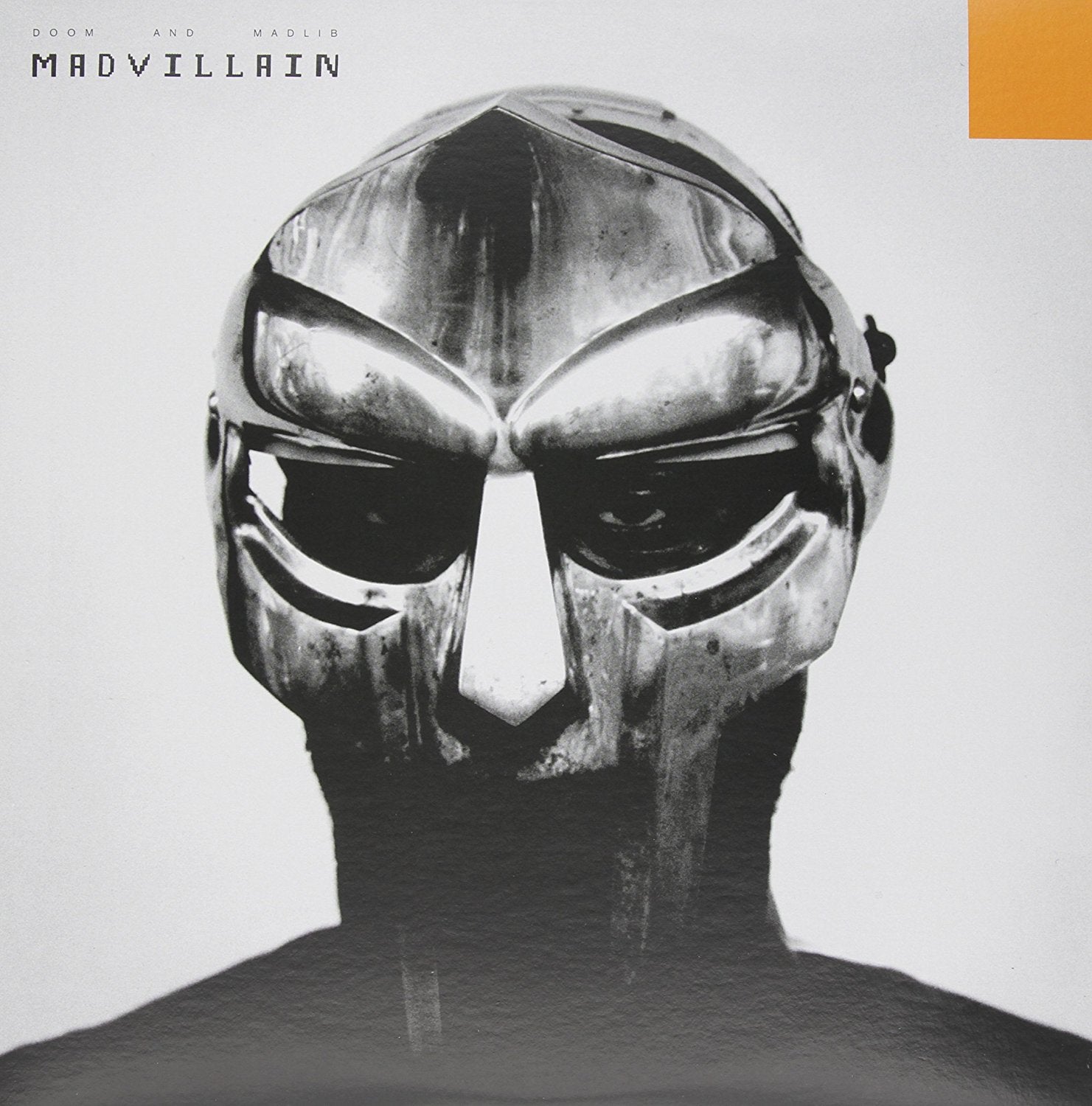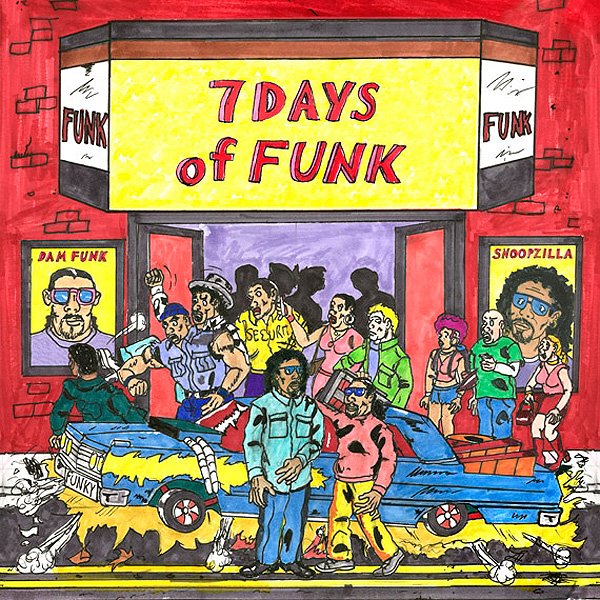Die 10 besten Stones Throw-Alben, die man auf Vinyl besitzen sollte
Ursprünglich als Outlet für die Underground-Szene des Hip-Hop an der Westküste mit einem Schwerpunkt auf Madlibs Produktionen gestartet, hat sich Stones Throw Records zu einem der führenden Labels für qualitativ hochwertige alternative Kunst über mehrere Genres hinweg entwickelt und das seit zwei Jahrzehnten. Während Peanut Butter Wolf, Geschäftsführer Egon und Madlib stetig ihre Bewegung von Grund auf aufbauten, dominierte das Label die Subkultur des kalifornischen Raps auf die gleiche Weise, wie Rhymesayers für den Mittleren Westen und Rawkus/Def Jux das führende unabhängige Label in New York waren.
nAuf dem Höhepunkt von Stones Throw trugen die Superproduzenten J Dilla und Madlib das Label auf ihren Schultern, veröffentlichten eine Reihe von gut angesehenen Klassikern und machten es zu einer Marke, die praktisch den Underground-Rap der frühen 2000er Jahre definierte.
nObwohl sie begonnen haben, eine Reihe von aufstrebenden unabhängigen R&B/soul-Künstlern anzunehmen, die von ihrem ursprünglichen Sound entfernt sind, strahlt Madlibs eklektischer Einfluss weiterhin sporadisch durch die Veröffentlichungen von Stones Throw. Lesen Sie unten über 10 der besten Veröffentlichungen des Labels.

NxWorries: Yes Lawd!
Following up early 2016 R&B masterpiece Malibu months later, superstar Anderson.Paak teamed up with Stones Throw’s minimalist beatmaker Knxwledge as NxWorries to release their debut LP Yes Lawd! Simplifying his approach to song structure by performing over programmed soul loops, Paak proved twice in a calendar year that his trademark raspy high pitch and compelling writing about relationships matched the pulse of culture.
The opener “Livvin” finds the vocalist toasting to spoils of the good life and the thrills of inevitable womanizing that accompanies success. Given Knxwledge studied the production methods of Stones Throw MVP Madlib closely, this album’s left field interludes, rough sketches and random audio clips give off the feel of a pimped out Madvillain homage. While the album practically centers around philandering, Anderson.Paak conveys a number of insecurities in dealing with the opposite sex: whether skepticism, intimidation that leads to seeing women as byproducts of servitude or “What More Can I Say” where he stoops to blaming temptation for the inability to commit himself to monogamy. Despite its callous approach to soul music, Yes Lawd! makes a strong statement in favor of this duo and the label’s investment in them.

J Dilla: Donuts
Already renowned by those in the know since the mid-late ’90s for working with Busta Rhymes, The Pharcyde, De La Soul and others, to say J Dilla birthed a new generation of producers with 2006’s Donuts would be putting it mildly. Though he had been creating beat tapes for practice that went bootlegged prior, this release rewrote the rules of Dilla’s production trade altogether.
Released February 7 on his 32nd birthday and three days before he passed away from ongoing health complications, the mythology behind Donuts says it was intended as a swan song. Taking his tireless work ethic full throttle, he let the music speak for him at his physically weakest point, creating the album from his hospital bed.
Mastering the tricks and techniques of sampling at previously unforeseen levels, he manipulated sounds at his will with arrangements that were mostly under two minutes in length, some going as short as 36 seconds. Mostly fusing ’70s soul and funk with hip-hop, he flipped Jackson 5 soundalike The Sylvers for “Two Can Win,” and went so far as to create magic adding drums to an obscure record from composer/inventor Raymond Scott for ”Lightworks.” Comprised of songs that have become treasured within his catalog, Dilla’s legacy benefited greatly from the platform Stones Throw gave him.

Madvillain: Madvillainy
Widely considered the most notable underground MC of the new millennium, MF DOOM went on a tear averaging an album released every year under a number of aliases from 1999-2005. Each album covered the spectrum from comedic to gloomy, with most diehards propping up the Madvillain outfit with Madlib as his crème de la crème.
As DOOM teamed up with Stones Throw’s key contributor at the time, the resultant Madvillainy was a masterpiece defined by zany curveballs. The album’s final song “Rhinestone Cowboy” references how early anticipation was so feverish that unfinished material was bootlegged well in advance, as the masked wordsmith notes, “It speaks well of the hyperbase / Wasn’t even tweaked and it leaked into cyberspace.”
An audio movie of sorts, sharp punchlines met left-of-center production as Madvillainy was a showcase for Madlib and DOOM at their best. Sticking to tradition while creating something new altogether, stoner anthem “America’s Most Blunted” features Quasimoto (a helium voiced Madlib alter-ego with a number of well-regarded albums to his own credit), “Money Folder” takes a brief jazz intermission between verses and “Great Day” replays a rare Stevie Wonder composition. This free-spirited lack of overthinking is what makes Madvillainy one of Stones Throw’s most widely touted releases.

Mndsgn: Body Wash
Initially making his mark at Stones Throw as a conventional hip-hop producer earlier this decade, Body Wash proves Mndsgn had more ambitious aspirations all along. A complete 180 from preconceived notions, this switch-up found the already well-respected musician becoming a mastermind as he added vocal harmonies to his arsenal. Paying proper tribute to 1980s boogie pioneers like Kashif, he bridged these post-disco sounds with ’90s soul to create original compositions that explored completely uncharted territory.
Using his art to help the progression of humanity, the album’s themes subliminally send mental health directives to listeners. The soft melodic keys on the soothing “Alluptoyou,” are perfect for meditation as Mndsgn sings of escaping earthly troubles. Accentuated by a jazz piano solo, “Use Ya Mnd (Twentyfourseven)” could be played during a late night R&B quiet storm radio format, while “Transmissionnn” fuses R&B with California funk heard blasting from lowrider automobiles on a beautiful day. Highlights like the sensual, transcendent “Lather” and “Searchin” (a three-part seven-minute suite) prove there’s no limit to Mndsgn’s creativity, leaving fans with no clue as to what he’ll attempt next. Having gained his greatest platform with this ingenious change of pace, Body Wash was a bold step out of his comfort zone full of creative risks that paid off in spades.

Gabriel Garzón-Montano: Jardín
Celebrating his French-Colombian heritage, the title to Gabriel Garzón-Montano’s 2017 Stones Throw debut Jardín, along with his extensive musical background as a multi-instrumentalist, are elements that peg him as a wild card.
Building on the blueprint laid by virtuosos like Prince and D’Angelo, Garzón-Montano adds folk elements to this mix on Jardín’s intro “Trial.” His knack for melody and composition shines through the lovelorn standout “Sour Mango,” while “The Game” is an upbeat lamentation on the daily rat race, with lyrics and abstract songwriting that places him at the forefront of up and comers. Not only straying from convention in lieu of fitting into a neat box by genre, he’s a master of toying with dynamics and letting songs build up to strike emotional chords. Having recently resurfaced with the spirited single “Golden Wings,” Gabriel’s future continues to look bright in the wake of this stellar debut.

Dam-Funk: Invite The Light
Affiliated with Stones Throw for a greater part of the past decade, Pasadena producer Dam-Funk successfully branded himself as the inventor of the “modern funk” genre. His 2015 opus Invite The Light celebrated the legacies of pioneers including Kashif, Ohio Players, Rick James and Prince while innovating and building his own sound from scratch.
A key component synonymous with Stones Throw’s reign this past decade, Dam-Funk brought the full package of production and singing as he let his creative imagination run wild on Invite The Light. Where his vocals may be an acquired taste for some, Dam-Funk’s greater focus lies in feel good music that makes sure to properly channel the sounds he grew up loving.
A concept album of sorts, Invite The Light’s theme places emphasis on inspirational messages tied to maintaining a positive outlook in order to make progression despite life’s hardships. Guest appearances include Q-Tip on the bass heavy “I’m Just Tryna’ Survive” and Snoop Dogg (who Dam-Funk did an album with years prior) on “Just Ease Your Mind From All Negativity,” both tracks carried by slapping percussion. The cinematic extended interlude “Surveillance Escape” best sums up Dam’s mission, as he takes on the role of an interdimensional vigilante putting it all on the line to save music.

Kiefer: Happysad
An unsung hero of the modern Los Angeles music scene, Kiefer Shackleford is equal parts traditional hip-hop producer and pianist. The great recognition he’s gained as a part of Mndsgn’s performance trio has built a platform for his talents to flourish on their own.
A testament to improvisation, Happysad is made up of programmed rhythmic head nodders that cover the gamut from classic jazz with a trumpet solo on “Dope Nerd” to the neo-soul vibes of “What A Day.” Considered by close followers to be a Herbie Hancock type of figure for this generation, Kiefer takes inspiration from a number of heroic figures and merges multiple decades of music into one cohesive sound.
A master of arrangement, Kiefer intertwines elements together as piano solos meet kicks and snares; the subdued keys and muffled drums of “Highway 41” being an example of this juxtaposition. Though “Socially Awkward” is steeped in Dilla-influenced boom-bap, he doesn’t allow a hard drum loop to to distract from his ability to shred with the best of them. An easy listening experience that makes sure to not thread into elevator music, Happysad’s alternating emotions are sure to appeal to fans of A Tribe Called Quest and jazz great McCoy Tyner alike.

7 Days Of Funk: Self-Titled
Approaching 30 years as a professional musician, Snoop Dogg has never hesitated to follow his inspiration and create based off of a vast musical appreciation for better or worse. His arguably most potent work of this decade comes by way of 2013’s 7 Days Of Funk.
Perhaps the most unexpected release in Stones Throw’s massive catalog, Snoop Dogg morphed into a character named Snoopzilla and worked with Dam-Funk for a week’s time to create an album based off of their shared appreciation for George Clinton and Parliament-Funkadelic’s groundbreaking work. Missing no steps in the way of authenticity, Bootsy Collins contributes vocals to the album’s opener “Hit Da Pavement,” while “Let It Go” celebrates the legacy of Los Angeles composer/vocalist Patrice Rushen and her hit “Feels So Real.”
While 7 Days Of Funk doesn’t exactly find Snoop Dogg achieving new feats with rapping (his well known penchant for marijuana goes consistently referenced), the synergy he has with Dam-Funk produces a novelty that was once all but inconceivable on an underground indie imprint. Going so far as to try his hand at singing verses on “Faden Away,” this different variation on his charming personality shows how he stuck to his own script while accomplishing a greater goal with help.

Prophet: Wanna Be Your Man
One of the truest examples of Stones Throw’s dedication to faithfully backing artists they believe in is the release of Wanna Be Your Man, a sophomore release from obscure funketeer Prophet. A story cut from a completely different cloth than the majority of music released in 2018, the album comes a great 34 years after his ironically titled debut Right On Time.
When Peanut Butter Wolf discovered Prophet’s old work, he decided to back a current day follow-up produced by Mndsgn, the label’s secret weapon who speaks the musical language of his elders. Delving deeper into boogie than ever, Wanna Be Your Man takes a less-is-more approach in introducing the elder statesman to this generation.
On the title track, Prophet sings in a high pitch that could perplex less-trained ears, but nonetheless soul bleeds through his vocals. An indication that his style originated in a past era, on “Ooh Wee Yeah,” he takes on blaxploitation comedian Rudy Ray Moore’s mannerisms of spoken word jive that’s loosely related to rapping.
Prophet’s octaves are rough around the edges, yet still commanding. For Mndsgn’s part, he’s adept at recreating synth-heavy post-disco dance floor sounds on “Tonight,” while the bridge on “Really Turn Me On” gives reminders of an old school freestyle rollerskating jam. Together, the two succeed at rehashing a time when groove went hand in hand with popular culture.

Stimulator Jones: Exotic Worlds And Masterful Treasures
Another step away from hip-hop for the Stones Throw brand, recent signee Stimulator Jones filters throwback soul through a modern lens. Playing everything from the piano to bass, guitar and harmonica, Exotic Worlds and Masterful Treasures is an album of love songs completely conceptualized by the artist without assistance.
“Water Slide” channels the sensuality of neo-soul maestro Maxwell, while “Give My All” goes back further in time as it sounds like a lost cut from ’80s R&B sensation DeBarge. Showing his appreciation for golden age rap, on “Soon Never Comes” Jones sings over a sample of ’90s Black Moon classic “How Many MC’s.”
While listeners can hear the smoothed out influence of New Edition in the background vocals on “Need Your Body” and West Coast funk inspires the Raphael Saadiq homage “I Want You Too,” Jones captures a number of feelings that makes him less of a one-note replica act than Stones Throw’s Mayer Hawthorne led duo Tuxedo. A radio friendly ode to unrequited romance, “Tempt Me With Your Love” ends with an electric guitar that gives reminders of Prince or Lenny Kravitz making a concerted effort to score a hit. The easiest box to place Stimulator Jones in would be R&B, but he defies convention altogether as he has no set cohesive sound, an example of Stones Throw’s platform designed around throwing caution to the wind and breaking rules.
Jesse Fairfax stammt aus Los Angeles und hat über New York und Philadelphia geschrieben. Seit 2004 schreibt er über Musik für verschiedene Online-Publikationen.
Related Articles
Trete dem Club bei!
Jetzt beitreten, ab 44 $Exclusive 15% Off for Teachers, Students, Military members, Healthcare professionals & First Responders - Get Verified!




